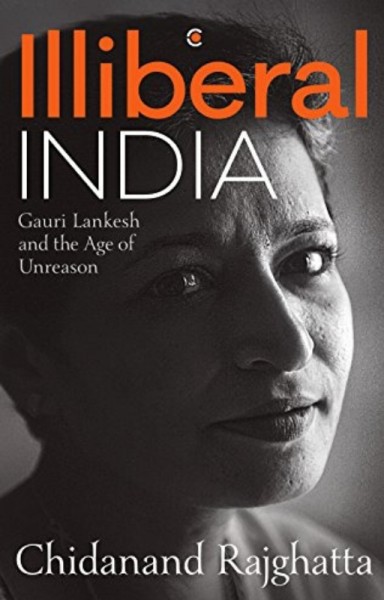I was getting this book in my suggestion list on my Kindle for quite some days. Around 1st week of September, I read an article about Gauri Lankesh on her third death anniversary which was on 5th September. I always wanted to know more about her and the work she did, so I thought of reading more about her and came across this book as a suggestion. I checked and found that it was written by her ex-husband and lifelong friend, Chidanand Rajghatta. With the assumption that the author being Gauri’s friend, he would certainly have more insight into her life and work, I thought of going ahead with the book.
The book is a tribute to Gauri Lankesh, written wonderfully. He captures the personal and professional life of Gauri along with the general social and political landscape of India and Karnataka.
The book came a year after Gauri was shot in the same manner in which Narendra Dhabolkar, Govind Pansare, and M.M. Kalburgi were murdered. It also dwells on the fact that Gauri was a fierce critique of communal forces spreading all over the country and in Karnataka. The book talks about Gauri’s childhood and growing up years with her highly respected writer and film director father, Mr. P. Lankesh, the founder of Lankesh Patrike. The author also talks about his courtship, marriage, and then divorce from Gauri and how after being divorced they remained best friends for life. Along with that runs a simultaneous story of India and Karnataka, political, social, and religious India. The author says something about the current political and social discourse which is so apt.
“At some point though, we need to question why we should be comparing ourselves to Saudi Arabia or China – or even with the United States for that matter. We are a unique country in the annals of world history, blessed with the most magnificent antiquity and diversity. Given the enormity and plurality of our population and the complexity of our society, it is remarkable that there is relatively little strife. But even the little strife we see is a little too much.”
Illiberal India is an informative book to understand in brief the political journey of India in general and Karnataka specifically. Be it the controversy about Tipu Jayanti, Lingayats, love jihad, Naxal problem, and the sudden rise of brutal bigotry. He captures Gauri Lankesh’s life and her death with honesty, maintaining a balance in her private and public life. Along the way, he presents the various facets of Gauri’s personality.
The author moves back and forth with & within each chapter so sometimes it becomes confusing for the reader to keep track of the happenings. If you are not familiar with the politics of Karnatka and not interested in politics in general you may lose interest in between. But if politics interests you then you will surely gain some insight.
The author has maintained a balance between the personal and social life of Gauri, any facts and his own opinions. Along with that, there runs another narrative which is an analysis and commentary on the changing political discourse. The author brings forth how extremism is hurting the country, and how as a result of it we are becoming an intolerant nation, as per him we are still not there yet. He treats all the extremists with the same disdain be it left or right or Hindu or Islamic extremism. He is a critique of both the Congress and BJP.
The book is written in easy language, however, if you are not familiar with the politics of Karnataka you might feel lost at times. On the brighter side, you get to know a lot about the state and its politics.
Avoid it If you don’t like non-fiction and If political & social issues are not your cup of tea.
Go for it to know more about the life of Gauri Lankesh and what she stood for. Also if you want to know a brief history of politics in India and Karnataka over the years.
